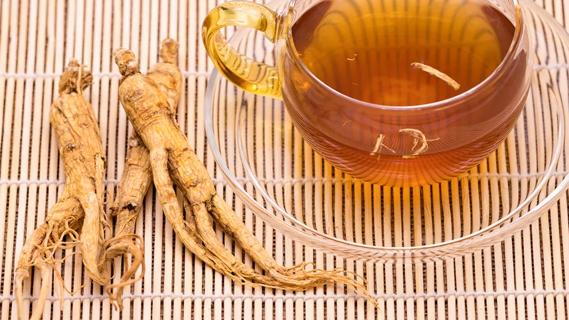This herbal medicine is said to reduce stress, ease pain and promote overall well-being, but more research is needed

There’s a lot of chatter these days about the health benefits of ashwagandha. And for good reason. If less stress, better sleep and improved memory are no more than a capsule away, who wouldn’t want to give it a try?
Advertisement
Cleveland Clinic is a non-profit academic medical center. Advertising on our site helps support our mission. We do not endorse non-Cleveland Clinic products or services. Policy
But is ashwagandha the cure-all your social media feed claims it is?
Integrative medicine specialist Yufang Lin, MD, helps sort out what we know about the potential benefits of ashwagandha.
Ashwagandha is an evergreen shrub found in India, Africa and parts of the Middle East. Proponents use it as an herbal remedy for everything from managing stress to reducing cancer risk. It also goes by the names winter cherry, Indian ginseng and its scientific classification, Withania somnifera.
It’s a staple in Ayurvedic medicine, the traditional medicine system in India.
“Ayurvedic medicine is a healing tradition that uses nutrition, exercise, mindfulness practices and botanicals to promote balance between the body, mind, spirit and environment,” Dr. Lin explains.
Commercially available remedies are typically made from the roots of the ashwagandha plant and are formulated into:
Thousands of years of Ayurveda suggest that ashwagandha can help improve both your physical and mental health. But as far as Western medicine is concerned, more rigorous research is needed.
Studies done on ashwagandha have been small in size. The dosages and formulations studied haven’t been consistent. And the results have been mixed. All in all, it’s tough to draw definitive conclusions from the data available.
Advertisement
Dr. Lin shares some of the reasons people use ashwagandha and what the research says about them.
There’s some scientific evidence to suggest ashwagandha may help to lower stress and improve sleep.
The National Center for Complementary and Integrative Health (NCCIH) says, “Research shows that some ashwagandha preparations may be effective for insomnia and stress. However, evidence is unclear about its effects on anxiety.”
Still, ashwagandha has been provisionally recommended as a treatment for generalized anxiety disorder by some professional organizations. That includes a task force of the World Federation of Societies of Biological Psychiatry (WFSBP) and the Canadian Network for Mood and Anxiety Treatments (CANMAT).
“The idea is that ashwagandha is an adaptogen, which are plants that can reduce the amount of cortisol (stress hormone) your body releases,” Dr. Lin reports. “Less cortisol can mean you feel less stressed mentally, and it can lessen the physical effects of stress. That could potentially help with things like headaches, high blood pressure, weight management and more.”
The NCCIH says, “There is some limited evidence that suggests that taking ashwagandha for 2 to 4 months may increase testosterone levels and sperm quality.”
That’s based, in part, on a 2017 literature review. The authors called the findings “promising” but noted that further studies were needed.
Ashwagandha is promoted for other health-boosting benefits, too — though the understanding of its uses is far from definitive.
Aside from its potential benefits for sleep, stress and male fertility, the NCCIH also says, “There isn’t enough evidence to determine if ashwagandha is helpful for any other health conditions.”
Keep that in mind as you hear about commonly cited ashwagandha benefits like:
The side effects of ashwagandha tend to be minimal. But it may have negative effects on your liver. It may also cause drowsiness and gastrointestinal troubles, like
In addition, ashwagandha can increase thyroid activity. So, it shouldn’t be used if you have borderline thyroid or hyperthyroidism.
Ashwagandha may contribute to uterine contractions, too. The risk is considered low, but it’s not recommended during pregnancy.
Advertisement
Is ashwagandha safe? It may be for some people, as long as you follow some precautions.
Dr. Lin advises:
Ashwagandha isn't considered safe for everyone. In fact, the potential for risks in certain people has led to ashwagandha being banned in Denmark. Don’t take ashwagandha if you:
Advertisement
Overall, ashwagandha may have some mind- and body-boosting benefits — but it’s not magic.
If stress, anxiety and sleep troubles are getting in the way of you living your best life, supplements shouldn’t be your first line of defense.
“Taking ashwagandha won’t make the stress go away, but it may help reduce the symptoms so you can feel more at ease,” Dr. Lin notes. “A better option is to develop coping tools to help manage stress in the future. That will go much further in the long run.”
Advertisement

Sign up for our Health Essentials emails for expert guidance on nutrition, fitness, sleep, skin care and more.
Learn more about our editorial process.
Advertisement

Until there’s more research on it, this plant’s greatest claim to fame is its deliciousness

This adaptogenic herb can help your body respond to stress — but there’s not enough evidence to prove other claims about its benefits

Far more research is needed to support the many touted health claims

Research suggests the effect of the supplement, particularly for prostate health, may not deliver believed benefits

Two types of ginseng work in different ways to help improve energy, immunity and heart health

Besides questionable effectiveness, herbal supplements aren’t safe for everyone

Natural doesn’t mean they’re safe or effective

This traditional Chinese medicine formulation may help with stress, depression and more

Even small moments of time outdoors can help reduce stress, boost mood and restore a sense of calm

A correct prescription helps your eyes see clearly — but as natural changes occur, you may need stronger or different eyeglasses

Both are medical emergencies, but they are very distinct events with different causes